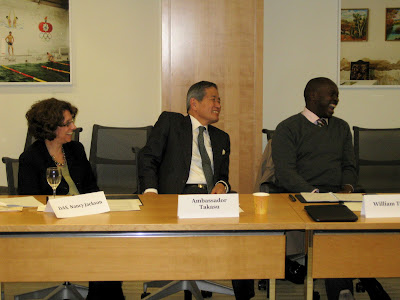We are delighted to announce that, as of July, 3P Human
Security has moved from Eastern Mennonite University to become a program of the
Alliance for Peacebuilding, in Washington DC.
3P Human Security grew out of initial responses to 9/11 at
Eastern Mennonite University by faculty, staff and students around the world
who wanted to bring the insights of conflict analysis and peacebuilding to the
world of security policymaking.
As our program has grown, we have partnered with a wide
range of think tanks and organizations in Washington, DC - and the Alliance for
Peacebuilding (AfP) has been our closest partner in reaching out to the U.S.
government to offer a peacebuilding point of view on current security
challenges.
We look forward to working closely with the AfP team to
continue our research, educational programs, multi-stakeholder roundtable
dialogues, and outreach efforts in Washington. This move enables 3P to work
more organically with a larger community of peacebuilding organizations, and
helps strengthen the bridges we are trying to build between civil society
voices and the policy making process in Washington, and around the world. We
look forward to building on our past work together, and to creating new,
dynamic programs in the future!
Warm Regards,
Lisa Schirch, 3P Human Security Director
Melanie Greenberg, Alliance for Peacebuilding President















